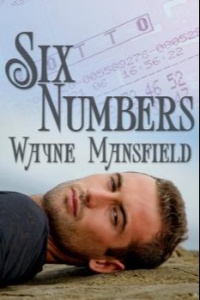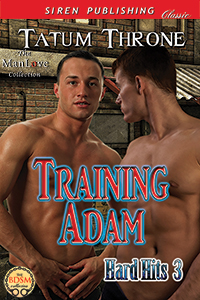Erotic Romance
- Erotic Romance
- Action/Adventure
- African-American
- Alternative (M/M, Gay)
- Anthology
- BDSM
- Chick Lit/Hen Lit
- Contemporary
- Erotica Fiction
- Fairy Tales/Myths
- Fantasy
- Futuristic
- Gothic
- Historical
- Horror/Twisted Tales
- Interracial
- May-December
- Menage a Trois/Quatre
- Multiple Partners
- Older H/h
- Paranormal
- Regency
- Romantic Comedy
- Romantic Suspense
- Rubenesque
- Science Fiction
- Shape-shifter
- Short Stories
- Time Travel
- Vampires/Werewolves
- Western/Cowboys
Mainstream Romance
- Mainstream Romance
- Action/Adventure
- African-American
- Anthology
- Bittersweet/Tragedy
- Chick Lit/Hen Lit
- Contemporary
- Fairy Tales/Myths
- Fantasy
- Futuristic
- Gay/Lesbian
- Gothic
- Historical
- Horror/Twisted Tales
- Inspirational
- Interracial
- Medical
- Paranormal
- Regency
- Romantic Comedy
- Romantic Literature
- Romantic Suspense
- Rubenesque
- Science Fiction
- Shape-shifter
- Short Stories
- Time Travel
- Vampires/Werewolves
- Western/Cowboys
- Women's Fiction
- Young Adult
Non-Fiction
- Art
- Biography & Autobiography
- Business
- Chemistry
- Children Nonfiction
- Computer Technology
- Cooking & Food
- Current Events
- Education
- Entertainment
- Ethics
- Family & Relationships
- Finance
- Folklore
- Gay/Lesbian Nonfiction
- Gender Studies
- General
- Grammar & Language Usage
- Health & Fitness
- History
- Humor
- Language Arts
- Medical
- Military
- Nature
- New Age
- Outdoor Recreation
- Performing Arts
- Pets
- Philosophy
- Political Science
- Professional
- Psychology
- Recovery
- Religion & Spirituality
- Self-Improvement
- Sociology
- Sports & Recreations
- Study Aids & Workbooks
- Text Book
- Travel
- Women's Studies
- Young Adult Nonfiction
Benjamin is Mr. Average, but has big dreams. Every week he buys two lottery tickets in the hope of striking it rich. So imagine his surprise when, one Saturday night, his numbers finally come up.
Ten million dollars transforms his life. He buys his dream house and outfits it with every beautiful thing he has ever wanted, complete with a real British butler. He also donates to animal charities and adopts Sasha, an abused dog. Yet with everything perfect, Ben soon feels unsatisfied.
On one of his nightly walks, he stumbles onto a local hook-up spot. Soon he becomes a regular customer, seeking quick and dirty sex with random strangers to provide the exhilaration he craves. But when he’s attacked by a gay basher, he realizes this isn’t the life he wants to lead, and packs up everything to move to the countryside.
Settling into a simpler life on a small farm, Ben hires the rough and ready Mick to help run the place. The two men become good friends -- Ben is attracted to Mick, but Mick appears to be straight, though curious about gay sex. But when Ben almost dies in an accident, the simmering attraction between the two comes to fruition.

That evening, as usual, Benjamin turned on the television to catch the Lotto numbers while he made dinner. His notepad and pencil were right by the chopping board; the white paper spotted with red capsicum juice. When it came time for the draw, he waited until half the numbers had been selected before he started to jot them down. When he’d finished, he pushed the notepad and pencil to one side and continued preparing his salad.
He ate dinner watching Funniest Home Videos before doing the dishes and cleaning up the kitchen. When everything was as it should be, he collected his notepad and pencil, retrieved his Lotto tickets from beneath the statuette of Buddha then walked over to the couch and sat down. At first he was just circling the odd number here and there. Six lines down on the coupon containing his regular numbers he had the first three winning numbers, but that was all. It had happened many times before. In fact once he’d had the first four numbers. He’d won a small prize, just enough to keep him interested, but he couldn’t help feeling a little disappointed.
He arrived at the bottom of the coupon without a prize and started on his Slikpik. By now he was only half-concentrating. He’d always figured that if he was going to win anything, he’d win on his regular numbers. After all, isn’t that what everyone said? If you played your numbers often enough, they’d have to come up sooner or later.
It was a strange sensation knowing he’d won before actually circling the numbers. Since he’d already checked sixteen games, the six winning numbers were firmly fixed in his mind. He only had to look at the fifth line on his Slikpik to know he had them. But what his mind found difficult to comprehend, the rest of his body certainly didn’t. He could feel a great ball of excitement whirling and growing in his stomach. His heartbeat quickened, and his breathing. Regardless, he had to circle the numbers. To see those six circles. To make it real. With a trembling hand he ringed each number with pencil then held it up to examine it more closely. He picked up the notepad and checked his ticket against the numbers written on the lined paper.
It finally sunk in. He’d won! Elated, he leapt off the couch and dashed to the telephone. Still trembling he somehow managed to dial.
“Mum, I’ve won!”
The Lotto numbers were a regular part of their weekly conversations. At that time on a Saturday night she didn’t have to ask what he’d won.
“Thirteen-fifty?” she replied, jokingly.
“No, no, no,” he stuttered. “Division one. First prize.”
“You’re joking!” gasped his mother, incredulously.
Benjamin started laughing. “No, I’m really not. I promise you. I’ve won Division One.”
“How much?”
“Division One is ten million dollars, but I don’t know how many other people have won.”
He heard his mother shout the news out to his father. “Ben’s just won ten million dollars!”
“That’s the Division One prize, Mum. I don’t know how many other people have won. I might not have won the whole ten million.”
“Doesn’t really matter, does it?”
People Also Bought:
Need Help?
Siren-BookStrand Portal | Privacy Notice | Disclaimer | Content Restrictions



















